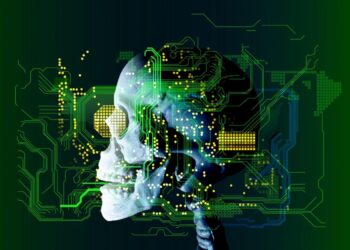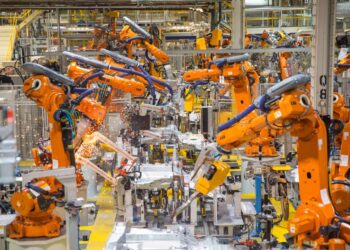In today’s rapidly evolving technological landscape, quantum computing is emerging as a groundbreaking force that is transforming the way we think about artificial intelligence (AI). As researchers and industry leaders push the boundaries of what’s possible, the interplay between quantum computing and AI is opening up unprecedented avenues for innovation, efficiency, and problem-solving. This article explores how quantum computing reshapes AI horizons, delves into the core technologies powering this revolution, and examines the transformative potential these advancements hold for various industries.
Quantum computing represents a monumental shift from classical computational paradigms. Unlike traditional computers that rely on binary bits, quantum computers employ quantum bits—qubits—which can exist in multiple states simultaneously. This inherent parallelism offers the ability to process vast amounts of data at speeds that were once unimaginable. The integration of such capabilities with AI is set to elevate machine learning, data analytics, and complex system modeling to entirely new dimensions.
As businesses, governments, and research institutions continue to explore the quantum realm, the need for optimized AI solutions has never been greater. The fusion of these two cutting-edge fields promises to accelerate discovery and foster growth across various sectors, including medicine, finance, cybersecurity, and more.
Quantum computing leverages the principles of quantum mechanics—superposition, entanglement, and interference—to solve problems that are intractable for classical computers. To appreciate its impact on AI, it is crucial to understand several foundational concepts:
A. Qubits and Superposition
Traditional computers use bits that represent either a 0 or a 1. In contrast, qubits, the basic unit of quantum information, can be both 0 and 1 simultaneously due to superposition. This capability allows quantum computers to perform many calculations at once, vastly increasing computational power.
B. Quantum Entanglement
Quantum entanglement is a phenomenon where particles become interconnected, such that the state of one instantly influences the state of another, no matter the distance between them. This principle is pivotal for the parallel processing capabilities seen in quantum computers, allowing for more complex problem-solving.
C. Quantum Interference
Interference, another quantum mechanical property, enables the cancellation of probabilities. Quantum algorithms harness interference to amplify correct solutions while reducing the likelihood of errors, thus enhancing the reliability of computations.
The Intersection of Quantum Computing and AI
The convergence of quantum computing and AI is not merely a theoretical concept—it is a burgeoning field with practical applications. Quantum-enhanced AI systems are being designed to overcome the limitations of classical AI models, particularly when dealing with high-dimensional datasets, optimization problems, and complex simulations.
A. Accelerating Machine Learning
Machine learning (ML), a core subset of AI, involves training algorithms on large datasets to identify patterns and make predictions. Quantum computers can significantly reduce the training time for ML models through quantum parallelism, enabling faster iteration cycles and more efficient learning processes.
B. Solving Complex Optimization Challenges
Many AI tasks, such as logistic planning, resource allocation, and scheduling, are essentially optimization problems. Quantum algorithms, like the Quantum Approximate Optimization Algorithm (QAOA), offer new methods to find optimal solutions more effectively than classical counterparts. This is particularly relevant in industries where optimizing supply chain logistics or financial portfolios can yield substantial benefits.
C. Enhancing Data Analysis and Pattern Recognition
Traditional AI methods often struggle with extremely large or unstructured datasets. Quantum computing’s ability to analyze massive volumes of data simultaneously allows for more nuanced pattern recognition and data segmentation. Applications in genomics, climate modeling, and market analysis stand to benefit from these advancements, as quantum-augmented systems deliver insights that were previously out of reach.
D. Pioneering Quantum Neural Networks
One of the most exciting prospects is the development of quantum neural networks (QNNs). These networks blend the principles of quantum computing with traditional neural network architectures, potentially leading to AI systems that are more powerful, faster, and capable of understanding complex phenomena with greater accuracy. QNNs could revolutionize fields like natural language processing, image recognition, and autonomous systems.
Breakthrough Technologies Fueling the Synergy
The progress in quantum computing technologies is the catalyst for its symbiotic relationship with AI. Several breakthrough innovations are central to this synergy:
A. Quantum Annealing
Quantum annealing is a method used for finding the global minimum of a function over a given set of candidate solutions. It is particularly useful in optimization problems, which are a staple of AI applications. Companies like D-Wave have pioneered quantum annealing systems, making strides in practical applications of this technology.
B. Gate-Based Quantum Computing
Gate-based quantum computing uses quantum gates to perform operations on qubits. This model is closer in spirit to classical computing and is anticipated to unlock more complex quantum algorithms that could directly enhance AI algorithms. Major technology companies such as IBM and Google are investing heavily in gate-based quantum systems.
C. Hybrid Quantum-Classical Systems
Since fully functional quantum computers are still in development, hybrid systems that integrate classical and quantum computations are emerging as a viable interim solution. These systems leverage the strengths of both paradigms—classical computing for routine tasks and quantum computing for complex, high-dimensional calculations. Hybrid systems are already proving invaluable in experimental AI applications and real-time data processing.
Real-World Applications and Industry Impact
The potential applications of quantum-enhanced AI span multiple industries, each with its unique set of challenges and opportunities. Here is a closer look at some key sectors where these technologies are making a difference:
Healthcare and Drug Discovery
The combination of quantum computing and AI is revolutionizing healthcare. Drug discovery, in particular, benefits from the ability to model molecular interactions with unprecedented detail. Quantum algorithms can simulate complex chemical reactions far more efficiently than classical methods, paving the way for accelerated drug development and personalized medicine.
- A. Faster Simulations: Quantum computing models the behavior of molecules and proteins at the atomic level, enabling rapid simulation of chemical interactions.
- B. Customized Treatments: AI-driven analysis of patient data, combined with quantum simulations, can lead to treatments tailored to individual genetic profiles.
- C. Cost Reduction: The enhanced efficiency in drug discovery processes can significantly reduce the time and cost associated with bringing new drugs to market.
Financial Services and Risk Management
In the realm of finance, quantum computing and AI are being applied to optimize trading strategies, manage risk, and detect fraud. Financial markets are notoriously complex, with countless variables influencing outcomes.
- A. High-Speed Trading Algorithms: Leveraging quantum computing for real-time data processing allows the development of trading algorithms that can react to market changes faster than ever before.
- B. Portfolio Optimization: AI models, enhanced by quantum computation, are capable of evaluating enormous datasets to optimize investment portfolios and minimize risk.
- C. Fraud Detection: With the immense parallel processing power of quantum computers, AI systems can sift through vast amounts of transactional data to identify suspicious patterns in real time.
Cybersecurity and Cryptography
Cybersecurity is another critical area where quantum computing reshapes AI horizons. As classical encryption methods face potential risks from quantum decryption techniques, the need for quantum-resistant cryptographic algorithms becomes paramount.
- A. Enhanced Encryption: Quantum computing has the potential to develop new encryption methods that are impervious to classical hacking techniques, ensuring robust data security.
- B. Anomaly Detection: AI systems can leverage quantum computations to analyze and identify anomalies in network traffic, making it possible to preempt cyber attacks.
- C. Secure Communication: Quantum key distribution (QKD) uses the principles of quantum mechanics to enable secure communications that are virtually unhackable, safeguarding sensitive information across digital channels.
Manufacturing and Supply Chain Optimization
Manufacturing and logistics are undergoing a radical transformation due to quantum-enhanced AI. In an era defined by global supply chain disruptions and intense competition, optimization is key.
- A. Process Optimization: Quantum computing can optimize manufacturing processes by efficiently managing complex operations, reducing waste, and increasing productivity.
- B. Supply Chain Resilience: AI systems, empowered by quantum algorithms, can predict supply chain bottlenecks and suggest alternative strategies to mitigate disruptions.
- C. Quality Control: Advanced pattern recognition and predictive maintenance techniques enhance quality control, ensuring higher consistency and reduced downtime in production lines.
Energy Sector and Environmental Sustainability
The energy industry is exploring quantum computing to improve grid management, renewable energy integration, and environmental monitoring. These advancements contribute directly to sustainability and a cleaner environment.
- A. Smart Grid Optimization: Quantum computing can help manage power grids more efficiently, balancing supply and demand in real time while incorporating renewable energy sources.
- B. Climate Modeling: AI models, when combined with quantum computing, can simulate climate patterns with enhanced precision, aiding in the development of more effective environmental policies.
- C. Resource Management: Improved predictive models help optimize the extraction and use of natural resources, contributing to energy efficiency and sustainability.
Challenges and Considerations in the Quantum-AI Convergence
Despite the promising future of quantum-enhanced AI, several challenges must be addressed to fully realize its potential. Recognizing these obstacles is critical for developers, businesses, and policymakers alike.
A. Technological Maturity
Quantum computing is still in its nascent stages. The hardware is highly sensitive to environmental disturbances (noise), and error rates remain high. Overcoming these technological hurdles will require significant investments in research, error correction methods, and resilient quantum architectures.
B. Integration Complexities
Merging quantum computing with classical AI systems demands novel frameworks and hybrid architectures that can seamlessly integrate the two paradigms. Developers must design systems that can switch tasks between quantum and classical processors effectively, which is a non-trivial engineering challenge.
C. Skill Gaps and Talent Shortage
The sophisticated nature of quantum computing and AI necessitates a highly specialized workforce. There is a notable shortage of professionals skilled in quantum mechanics, algorithm design, and advanced AI techniques. Addressing this gap will involve reformed educational programs and industry-led training initiatives.
D. Financial Investment
Research and development in quantum computing are capital-intensive. Governments and private investors must commit to funding long-term projects, despite the high initial costs and uncertain timeframes for achieving commercially viable quantum solutions.
E. Ethical and Security Concerns
As quantum computing potentially undermines current encryption methods, ethical and security implications must be thoroughly considered. Ensuring that quantum advancements do not compromise data privacy or lead to unintended societal consequences is paramount, requiring robust policy frameworks and international cooperation.
Strategies for Addressing Quantum-AI Challenges
To navigate the inherent challenges of integrating quantum computing with AI, several strategic approaches can be adopted:
A. Collaborative Research Initiatives
Building partnerships between academia, industry, and governments is essential. These collaborations can pool resources, share expertise, and accelerate the development of both quantum and AI technologies.
B. Investment in Education and Training
Establishing specialized curricula and training programs in quantum computing and AI will help bridge the skills gap. Initiatives such as internships, fellowships, and public-private training programs can cultivate a new generation of experts.
C. Incremental and Hybrid Adoption
Until fully operational quantum systems become a reality, hybrid models that combine classical and quantum methods can be implemented. This incremental approach allows for gradual adaptation and testing of quantum-enhanced AI algorithms, mitigating risks associated with complete reliance on unproven technology.
D. Ethical and Regulatory Frameworks
Developing stringent ethical guidelines and regulatory standards is vital. These frameworks should address data protection, cybersecurity, and the broader societal impacts of quantum-enhanced AI, ensuring that advancements are made responsibly and sustainably.
E. Investment in Error Correction and Robust Hardware
To overcome the technical limitations of quantum hardware, continuous research in error correction protocols and more robust qubit architectures is necessary. Significant investment in improving the physical reliability of quantum systems will pave the way for broader, more secure applications.
The Future Trajectory: What Lies Ahead
The synergy between quantum computing and AI presents a transformative horizon that is only beginning to be explored. As technological improvements continue and more sophisticated systems are developed, the applications of quantum-enhanced AI will expand and evolve in several exciting directions.
A. Next-Generation AI Algorithms
Developers are already working on AI algorithms specifically designed to run on quantum processors. These algorithms, which leverage quantum properties such as superposition and entanglement, promise to solve complex problems faster and more accurately than ever before.
B. Global Research Collaborations
International consortia dedicated to quantum research and AI development are expected to emerge, encouraging knowledge sharing and joint projects that transcend national boundaries. Such collaborations will catalyze faster innovations and lead to groundbreaking breakthroughs in science and technology.
C. Integration with IoT and Edge Computing
The future of quantum-enhanced AI will likely involve its integration with the Internet of Things (IoT) and edge computing. This integration will enable real-time data processing and decision-making at the device level, facilitating smarter cities, better resource management, and enhanced user experiences across various applications.
D. Democratization of Quantum Technologies
As quantum computing technology matures, there will be a strong push towards making it more accessible. Cloud-based quantum computing services are on the horizon, allowing researchers, developers, and businesses of all sizes to experiment with and deploy quantum-enhanced AI solutions without the need for expensive hardware.
E. Evolution of Quantum Ethics and Governance
With great power comes great responsibility. The evolution of ethical guidelines, regulatory oversight, and governance models tailored to quantum technologies will be crucial in ensuring that these advancements serve the global community in a fair, transparent, and beneficial manner.
Conclusion
Quantum computing is poised to revolutionize artificial intelligence, setting the stage for a new era of innovation that transcends the limitations of classical computing. By harnessing the peculiar properties of qubits, superposition, entanglement, and interference, quantum-enhanced AI systems are breaking barriers in machine learning, data analysis, optimization, and more.
From healthcare to finance, cybersecurity to manufacturing, the transformative impact of quantum computing on AI applications is vast. Despite challenges such as technological maturity, integration complexities, and ethical concerns, the path forward is paved with opportunities for collaborative research, educational investment, and incremental adoption of hybrid systems.
As we stand on the brink of this technological frontier, fostering growth through disruptive reinventions is not just a possibility—it is an imperative. Embracing the convergence of quantum computing and AI will not only enhance our problem-solving capabilities but also unlock new realms of creativity and efficiency. The future is quantum, and the horizons of artificial intelligence are being reshaped before our very eyes.
By understanding the intricate mechanics behind quantum technologies and their integration into AI, industries can better prepare for a future where rapid innovation meets sustainable growth. It is a future that demands visionary leadership, interdisciplinary collaboration, and a commitment to ethical advancement—one where the possibilities are as limitless as the quantum states themselves.












